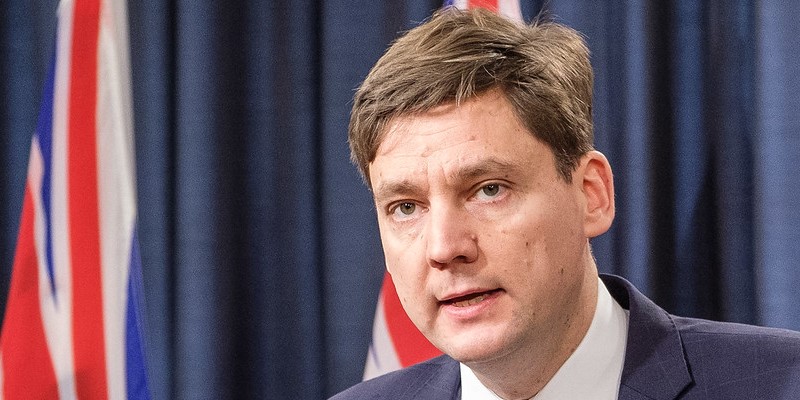B.C. government’s plan to co-manage public land with First Nations will close province for business

British Columbia has long struggled to attract investment, and keep and grow successful entrepreneurs and businesses, a critical lifeblood for any economy. This struggle has gotten progressively worse as the provincial government introduces new policies that make it increasingly difficult for businesses and entrepreneurs to thrive, ultimately imperiling living standards in the province. Now, the government is quickly and quietly moving towards co-management (alongside more than 200 First Nations) of all Crown land (i.e. public land), roughly 94 per cent of the province. This would be a death knell for investment in the province.
Between 2010 and 2019, the decade preceding COVID, B.C. attracted less private investment per worker than the national average and well behind Alberta, Saskatchewan and even Manitoba. While B.C. fared slightly better in 2021, the latest year of available data, the province’s per-worker investment remains only 62 per cent of the level in the United States.
As expected, the lack of business investment has produced lower incomes. According to a recent report comparing the median employment income of 59 large metropolitan areas in western Canada and the western United States, of the bottom 10 cities, five were in B.C. And Vancouver, the province’s commercial hub, ranked 47th at CA$37,300, far behind top-ranked Silicon Valley (CA$73,895).
In B.C., poor government policy drives a poor investment climate. Consider our business tax system, which includes the highest total tax rate on businesses in Canada. A study published by the University of Calgary found that in 2020, B.C.’s total business tax rate, including federal business taxes, was 25.6 per cent, dwarfing the national average (15.6 per cent) and the rate in neighbouring Alberta (12.1 per cent).
On the regulatory front, a 2022 survey of mining companies ranked B.C. 27th of 62 jurisdictions for mining investment attractiveness and a 2023 survey of petroleum companies ranked B.C. 15th of 17 jurisdictions for its investment attractiveness. Both surveys cited the same three risks as inhibiting investment—land claims, protected areas and environmental regulations.
Just how economically damaging are these risks? According to the B.C. government’s own economic estimates, its regulations to reduce greenhouse gas emissions (GHGs), known as CleanBC, will cost the province $28 billion in lost economic activity by 2030. In other words, by the end of the decade British Columbians will be $4,600 poorer per person than they would be without these regulations.
Which brings us back to the provincial government’s plan to co-manage all Crown land with more than 200 First Nations. The government wants to “share decision-making” on all Crown land by this spring. In other words, within the next four months or so, the government hopes to introduce an entirely new regime where the government and First Nations jointly make decisions about land-use on public lands.
Make no mistake, this change will have massive consequences for B.C.
Currently, British Columbians, through their elected provincial government, are the final decision-makers about what happens on public lands. According to the government, the “Land Act is the primary article of legislation that is used by the government to convey land to the public for community, industrial and business use.” That covers everything from how the land is used for communications and electricity transmission towers, to mining, tourism, agriculture and transportation infrastructure. The Act also covers lakes, rivers and the coastline, which impacts anything on water including future hydro projects.
In essence, if the government changes the Land Act according to its co-management plan, First Nations will become joint landlords of more than 90 per cent of B.C. and own veto power over any decision British Columbians want to make for our province.
It’s hard to overstate the chill these proposed changes would have on B.C.’s investment climate, particularly given existing concerns about land claims and regulations. The province will become essentially un-investable in many industries that do business on Crown lands or water.
Clearly, the uncertainty and sheer magnitude of this proposal deserve closer scrutiny by British Columbians who should have a greater voice in these proposed changes. To say that the government is rushing and not being fully transparent with such a monumental change in legislation would be a generous understatement. The economic and fiscal implications of these changes will be profound, and the provincial government has failed to disclose any economic impacts.
At a minimum, the government should delay the implementation of these changes and allow a robust debate to occur. More fundamentally, changes of this significance ought to be decided by British Columbians through our electoral process—either an election or referendum. That’s how unprecedented and profound the move towards de facto co-ownership of all Crown lands is to the future of our great province.
Authors:
Subscribe to the Fraser Institute
Get the latest news from the Fraser Institute on the latest research studies, news and events.

